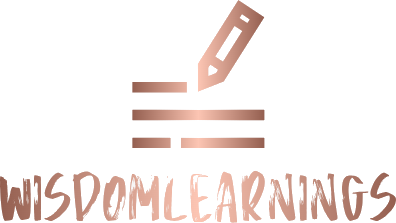Building and maintaining strong professional networks is crucial for career development, personal growth, and achieving professional goals. A robust network provides opportunities for collaboration, career advancement, and gaining valuable insights from peers and mentors. This article offers practical strategies for developing and sustaining effective professional connections.
1. Start with a Clear Purpose
Before you begin networking, it’s important to have a clear purpose. Define your goals for building a professional network. Are you looking for career advancement, seeking new opportunities, or aiming to expand your knowledge in a specific area? Understanding your objectives will help you focus your networking efforts and engage with the right individuals who can support your goals.

2. Leverage Existing Relationships
Start by nurturing your existing relationships. Your current colleagues, friends, and acquaintances can be valuable connections. Reconnect with former colleagues, mentors, and classmates. Attend alumni events, reunions, and professional gatherings to strengthen these ties. These relationships can serve as a foundation for expanding your network and can provide introductions to new contacts.
3. Attend Industry Events and Conferences
Industry events, conferences, and seminars are excellent opportunities to meet professionals in your field. These events often attract a diverse group of individuals, including industry leaders, potential collaborators, and like-minded peers. Prepare for these events by researching attendees, setting up meetings in advance, and crafting a compelling elevator pitch about yourself and your interests. Engage actively in discussions, attend workshops, and participate in networking sessions to maximize your exposure and connect with relevant individuals.
4. Utilize Online Networking Platforms
Online networking platforms such as LinkedIn, Twitter, and industry-specific forums offer valuable opportunities to connect with professionals beyond your immediate geographic area. Create a comprehensive LinkedIn profile that highlights your skills, achievements, and career aspirations. Join relevant groups and participate in discussions to showcase your expertise and engage with industry leaders. Regularly update your profile, share relevant content, and interact with your connections to maintain an active online presence.

5. Offer Value to Others
Networking is not just about what you can gain but also about what you can offer. Be proactive in providing value to others. Share relevant resources, offer assistance with projects, and provide introductions that could benefit your contacts. By being genuinely helpful and supportive, you build trust and goodwill, which can lead to reciprocal support and opportunities in the future.
6. Build Genuine Relationships
Focus on building genuine relationships rather than just collecting contacts. Take the time to get to know individuals on a personal level. Show interest in their work, listen actively, and engage in meaningful conversations. Building strong relationships requires effort and authenticity, so prioritize quality interactions over quantity. Follow up after initial meetings, stay in touch regularly, and celebrate your contacts’ achievements to strengthen these connections.
7. Seek Out Mentors and Advisors
Mentors and advisors play a crucial role in professional development. Look for experienced individuals who can provide guidance, offer career advice, and share their expertise. Establishing a mentoring relationship can provide valuable insights, help you navigate career challenges, and open doors to new opportunities. Approach potential mentors with a clear understanding of what you hope to gain from the relationship and how you can contribute to their professional life.
8. Participate in Professional Associations
Joining professional associations related to your field can provide access to a network of industry professionals. These organizations often offer networking events, workshops, and conferences that can help you connect with peers and industry leaders. Active participation in committees, special interest groups, or volunteer opportunities within these associations can further enhance your visibility and networking opportunities.

9. Stay Engaged and Follow Up
Maintaining a strong professional network requires ongoing engagement. Regularly follow up with your contacts through emails, social media interactions, or informal catch-ups. Share updates about your professional achievements and milestones, and inquire about their experiences and accomplishments. Staying engaged helps keep your connections active and ensures that you remain on their radar.
10. Adapt and Evolve Your Networking Strategy
Networking is an ongoing process, and your strategy should evolve with your career and professional goals. Regularly assess your networking efforts and adjust your approach as needed. Be open to exploring new networking opportunities, such as emerging industry events, online platforms, or innovative networking formats. Continuously seek ways to expand and refine your network to align with your evolving career aspirations.
Conclusion
Building and maintaining strong professional networks is a dynamic and ongoing process that requires intention, effort, and authenticity. By starting with a clear purpose, leveraging existing relationships, attending industry events, utilizing online platforms, offering value, and building genuine connections, you can create a robust network that supports your professional growth and goals. Engaging with mentors, participating in professional associations, and staying engaged with your contacts further enhances the strength of your network. As you navigate your career journey, remember that a strong professional network is not only a valuable asset but also a reflection of your commitment to fostering meaningful and mutually beneficial relationships.


